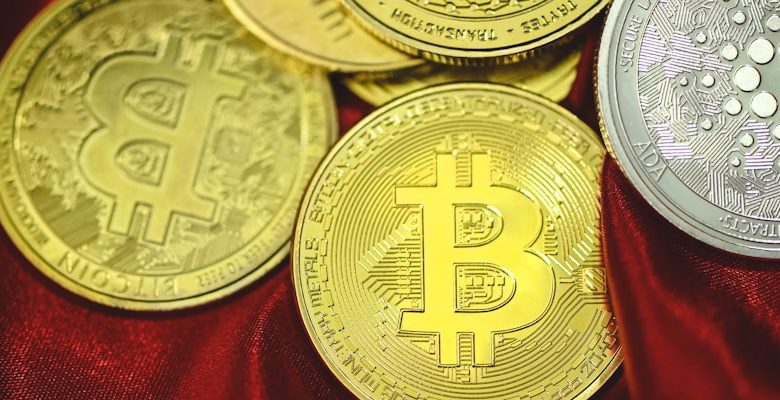What is Decentralized Finance (DeFi)? An Overview

- Understanding the Basics of Decentralized Finance
- Exploring the World of DeFi: A Beginner’s Guide
- The Rise of Decentralized Finance: A Game Changer in the Financial Industry
- How DeFi is Revolutionizing Traditional Banking Systems
- Key Components of Decentralized Finance: Smart Contracts, Liquidity Pools, and More
- Challenges and Opportunities in the Growing DeFi Ecosystem
Understanding the Basics of Decentralized Finance
Decentralized finance (DeFi) is a new financial system that operates without traditional intermediaries such as banks or brokers. Instead, DeFi relies on blockchain technology to create open-source protocols and smart contracts that enable peer-to-peer transactions. This allows users to access financial services such as lending, borrowing, trading, and investing directly from their digital wallets.
One of the key concepts in DeFi is decentralization, which means that there is no central authority controlling the system. Instead, decisions are made collectively by the community through consensus mechanisms such as proof of stake or proof of work. This eliminates the need for trust in third parties and reduces the risk of censorship or fraud.
Another important aspect of DeFi is transparency. All transactions on the blockchain are publicly recorded and can be viewed by anyone, ensuring that there is no room for manipulation or hidden fees. This transparency also allows users to verify the integrity of the system and build trust in the technology.
Furthermore, DeFi is programmable, meaning that developers can create new financial products and services using smart contracts. These self-executing contracts automatically enforce the terms of an agreement, eliminating the need for intermediaries and reducing costs. This flexibility allows for innovation and customization in the financial sector.
Overall, DeFi offers a more inclusive and accessible financial system that empowers individuals to take control of their own assets and participate in the global economy. By leveraging blockchain technology, DeFi has the potential to revolutionize traditional finance and create a more efficient, transparent, and secure financial ecosystem.
Exploring the World of DeFi: A Beginner’s Guide
When it comes to exploring the world of decentralized finance (DeFi), beginners may feel overwhelmed by the vast array of options and concepts to understand. DeFi is a rapidly growing sector within the cryptocurrency industry that aims to revolutionize traditional financial systems by eliminating the need for intermediaries and central authorities.
One of the key principles of DeFi is the use of blockchain technology to create transparent and secure financial applications that operate without the need for a central authority. This means that transactions can be conducted directly between users, without the need for a bank or other financial institution to facilitate the process.
As a beginner in the world of DeFi, it is important to familiarize yourself with some of the basic concepts and terms that are commonly used in this space. Some of the most important ones to understand include decentralized exchanges (DEXs), liquidity pools, yield farming, and smart contracts.
Decentralized exchanges, or DEXs, are platforms that allow users to trade cryptocurrencies directly with one another, without the need for a centralized authority to oversee the transactions. Liquidity pools are pools of tokens that are locked in a smart contract and used to facilitate trading on DEXs.
Yield farming is a process in which users provide liquidity to DeFi protocols in exchange for rewards, such as interest payments or additional tokens. Smart contracts are self-executing contracts with the terms of the agreement between buyer and seller directly written into lines of code.
By familiarizing yourself with these basic concepts, you can begin to explore the world of DeFi and understand how this innovative technology is reshaping the financial landscape. As you delve deeper into the world of DeFi, you will encounter more complex concepts and projects that offer exciting opportunities for financial innovation and growth.
The Rise of Decentralized Finance: A Game Changer in the Financial Industry
Decentralized finance, or DeFi, has been gaining traction in the financial industry as a game changer. Unlike traditional finance, DeFi operates on blockchain technology, allowing for peer-to-peer transactions without the need for intermediaries such as banks or financial institutions.
One of the key advantages of DeFi is its accessibility. Anyone with an internet connection can participate in DeFi platforms, opening up financial opportunities to a global audience. This inclusivity is revolutionizing the way people access and manage their finances.
Another significant aspect of DeFi is its transparency. All transactions on the blockchain are recorded and can be viewed by anyone, ensuring trust and accountability in the system. This level of transparency is a stark contrast to traditional finance, where opacity often leads to mistrust.
Moreover, DeFi offers a wide range of financial services, including lending, borrowing, trading, and investing. These services are typically more efficient and cost-effective than their traditional counterparts, making DeFi an attractive option for many users.
Overall, the rise of decentralized finance represents a paradigm shift in the financial industry. With its accessibility, transparency, and diverse range of services, DeFi has the potential to democratize finance and empower individuals worldwide.
How DeFi is Revolutionizing Traditional Banking Systems
Decentralized Finance (DeFi) is revolutionizing traditional banking systems by offering a new way for individuals to access financial services without the need for intermediaries. This innovative approach allows users to participate in various financial activities such as lending, borrowing, and trading directly on blockchain platforms.
One of the key advantages of DeFi is its ability to provide financial services to individuals who are underserved or excluded from the traditional banking system. By using smart contracts and decentralized applications (dApps), DeFi platforms can offer more accessible and inclusive financial products to a broader range of users.
Furthermore, DeFi eliminates the need for centralized authorities such as banks, which can lead to more transparent and secure transactions. With blockchain technology, all transactions are recorded on a public ledger, reducing the risk of fraud and manipulation.
Overall, DeFi is reshaping the way we think about financial services by providing a more open, transparent, and inclusive system that empowers individuals to have more control over their finances. As DeFi continues to evolve and gain popularity, it has the potential to disrupt traditional banking systems and create a more decentralized and democratized financial ecosystem for everyone.
Key Components of Decentralized Finance: Smart Contracts, Liquidity Pools, and More
Decentralized finance (DeFi) relies on several key components to function effectively. Smart contracts play a crucial role in automating transactions without the need for intermediaries. These self-executing contracts are coded to execute specific actions when predetermined conditions are met, ensuring transparency and security in financial transactions.
Another essential component of DeFi is liquidity pools, where users can provide liquidity for various assets in exchange for rewards. Liquidity pools help facilitate trading and borrowing within decentralized platforms by ensuring there are enough funds available for transactions to occur seamlessly.
In addition to smart contracts and liquidity pools, decentralized exchanges (DEXs) play a significant role in the DeFi ecosystem. DEXs allow users to trade cryptocurrencies directly with one another without the need for a central authority. This peer-to-peer trading model enhances privacy and security while reducing the risk of censorship or manipulation.
Furthermore, decentralized lending platforms enable users to borrow and lend assets without the need for traditional financial institutions. By leveraging smart contracts and collateralization, DeFi lending platforms provide an alternative source of funding for individuals and businesses.
Overall, the key components of decentralized finance work together to create a more accessible, transparent, and inclusive financial system. By leveraging blockchain technology and decentralized networks, DeFi is revolutionizing the way we think about traditional finance and empowering individuals to take control of their financial future.
Challenges and Opportunities in the Growing DeFi Ecosystem
As the DeFi ecosystem continues to grow, it presents both challenges and opportunities for participants in the space. One of the main challenges is the issue of security, as decentralized platforms are often targeted by hackers due to their open-source nature. This highlights the importance of robust security measures to protect user funds and maintain trust in the system.
Another challenge is the lack of regulatory clarity surrounding DeFi, with many governments struggling to keep up with the pace of innovation in the space. This uncertainty can hinder mainstream adoption and investment in DeFi projects, as potential users and investors may be wary of legal implications.
Despite these challenges, the growing DeFi ecosystem also presents numerous opportunities for those involved. Decentralized finance has the potential to revolutionize traditional financial systems by providing greater access to financial services, reducing costs, and increasing efficiency.
Furthermore, DeFi opens up new avenues for innovation in areas such as lending, trading, and asset management. With decentralized platforms offering a wide range of financial products and services, users have more options to choose from and can tailor their financial strategies to suit their individual needs.



